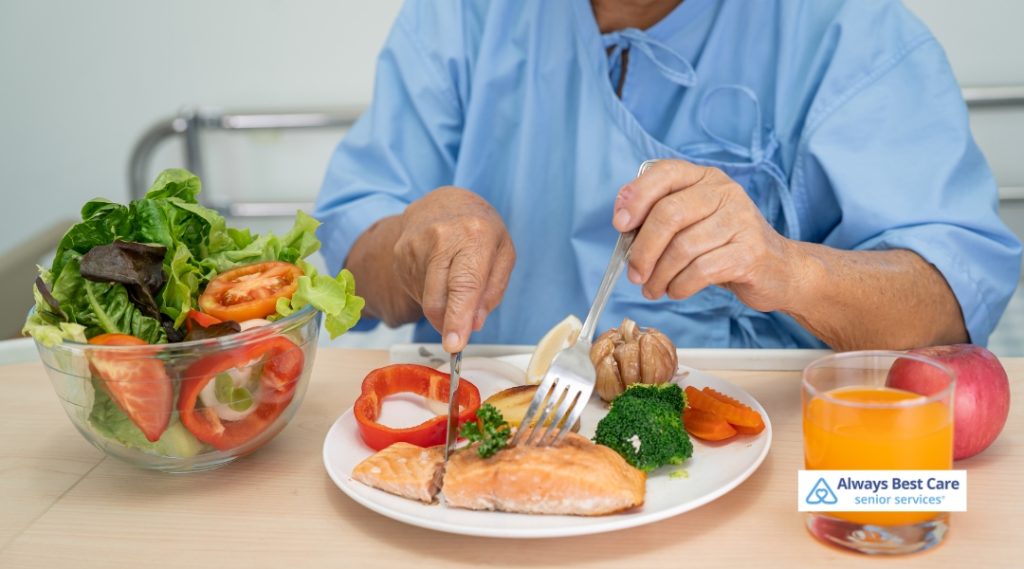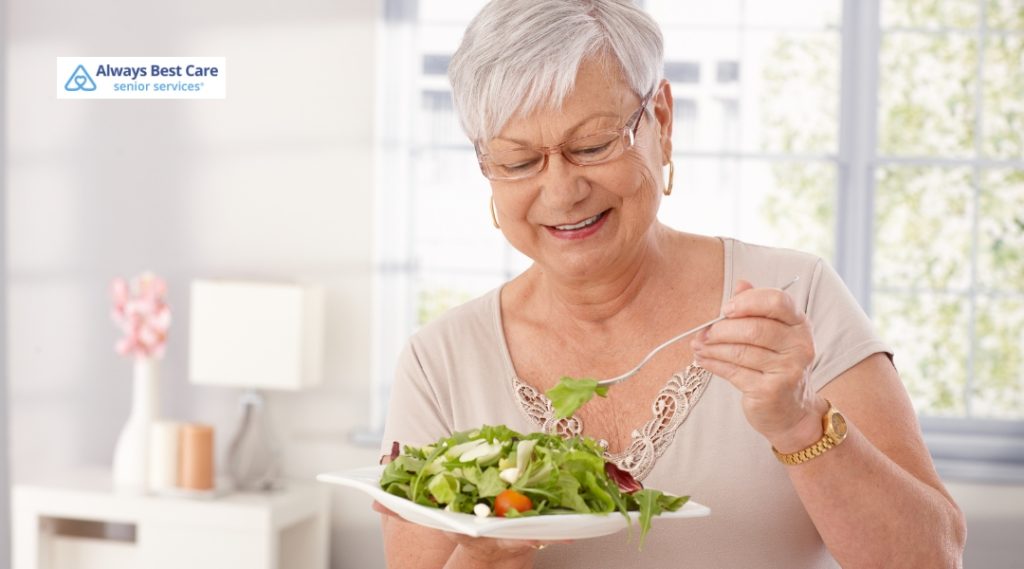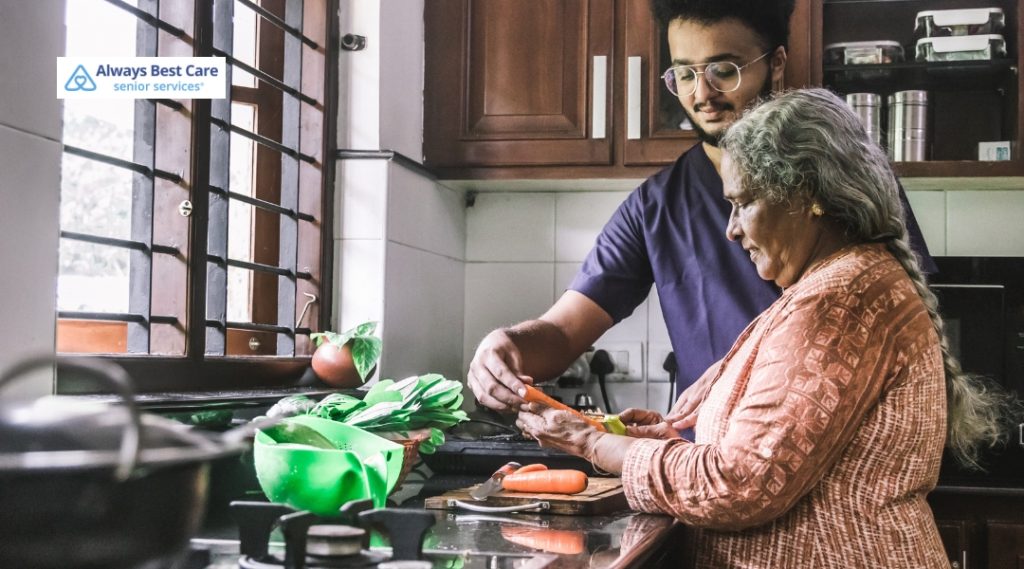Encouraging Healthy Eating: How to Boost Your Senior’s Appetite in Wallingford, CT

As we age, our appetites can wane, affecting our health and independence. This decline can be due to various factors, from changes in taste and smell to medications, dental issues, or even loneliness.
Encouraging healthy eating habits in seniors is crucial to prevent malnutrition, weight loss, and decreased energy levels.
In this article, we’ll look at practical ways to make meals more appealing and enjoyable for seniors.
What you will learn:
- The common causes behind decreased appetite in seniors.
- Simple and creative strategies to make meals more appealing, enjoyable, and easier to eat for seniors.
- The role of social interaction, meal planning, and caregiver support in encouraging healthy eating habits and promoting seniors’ well-being.
Table of Contents
Understanding the Underlying Causes
Before we can fix the problem, it’s essential to understand why your senior might not be eating well.
Common reasons include:
- Side effects from medications, such as nausea or dry mouth.
- Dental issues or ill-fitting dentures.
- Difficulty chewing or swallowing.
- Depression, isolation, or grief.
- Chronic health conditions.
- Loss of taste or smell.

Making Meals More Appealing
Seniors are more likely to eat when food looks and smells good. Here are some tips to enhance mealtime:
- Visual Appeal: Include a variety of colorful fruits and vegetables. Use attractive plates and add herbs and spices to boost flavor without excess salt.
- Ambiance: Soft lighting, pleasant background music, and a calm atmosphere can make mealtimes more inviting.
Serving Smaller, More Frequent Meals
Large meals can be overwhelming for those with smaller appetites. Try offering:
- Smaller Portions: Three small meals and two to three snacks throughout the day.
- Nutrient-Dense Snacks: Yogurt, smoothies, cheese, or nuts provide calories and essential nutrients without feeling like a full meal.

Eating Together
Eating is often a social activity. Sharing meals with your loved one can make a big difference.
If you can’t be there regularly, arrange for other family members, friends, or a caregiver to join them.
Making Eating Easier
If chewing or swallowing is difficult, focus on:
- Soft Foods: Scrambled eggs, mashed potatoes, oatmeal, or soups.
- Proper Dentures: Ensure they fit well and address any mouth pain.
- Texture and Temperature: Adjust these to increase comfort and interest in meals.

Planning Ahead and Getting Creative
Meal planning can eliminate stress and encourage variety.
Involve your loved one in choosing meals and groceries so they feel more engaged.
Preparing meals ahead of time, trying new recipes, and incorporating favorite comfort foods can all help renew their interest in eating.
How We Can Help
At Always Best Care of Wallingford, our experienced caregivers can assist with meal planning, grocery shopping, and preparing tasty, nutritious meals tailored to your loved one’s preferences and dietary needs.
Whether it’s encouraging hydration, adjusting meals for swallowing difficulties, or simply providing companionship during mealtime, we’re here to help make eating a positive experience again.

FAQ
Q: Why is nutrition important for seniors?
A: Nutrition is crucial for maintaining health, preventing diseases, and supporting cognitive function and bone health.
Q: How can I make meals more appealing to seniors?
A: Use colorful fruits and vegetables, attractive plates, and herbs and spices. Create a pleasant atmosphere with soft lighting and music.
Q: What are some easy-to-eat foods for seniors with swallowing difficulties?
A: Soft foods like scrambled eggs, mashed potatoes, oatmeal, or soups are great options.
Q: How can I encourage my senior to eat more frequently?
A: Offer smaller, more frequent meals and nutrient-dense snacks throughout the day.
Q: Can caregivers help with meal planning and preparation?
A: Yes, caregivers can assist with meal planning, grocery shopping, and preparing meals tailored to dietary needs.
Schedule Your Complimentary Consultation With Always Best Care of Wallingford Today!
If your aging loved one is struggling with appetite loss or needs support with daily routines, contact Always Best Care of Wallingford at (203) 269-1522 to schedule a care consultation. Our compassionate caregivers are here to support health, wellness, and independence—starting right at the kitchen table.





